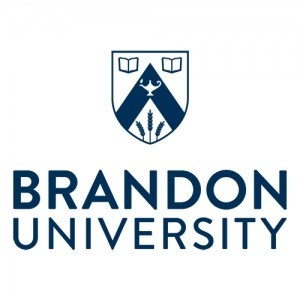Photos of university / #uwinnipeg
The Bachelor of Arts in Interdisciplinary Linguistics at the University of Winnipeg offers students a comprehensive exploration of language and communication from multiple perspectives, integrating insights from linguistics, anthropology, psychology, and sociology. This innovative programme is designed for students who are passionate about understanding the fundamental structures of language, the diversity of linguistic practices across cultures, and the social implications of language use. Throughout the programme, students engage in critical analysis of language phenomena, develop strong research skills, and gain practical experience in linguistic analysis and language documentation. The curriculum covers core areas such as phonetics, phonology, morphology, syntax, semantics, and pragmatics, while also emphasizing interdisciplinary approaches that connect linguistic theory with cognitive science, cultural studies, and language technology. Students have opportunities to participate in linguistic fieldwork, language preservation projects, and community-based research initiatives, fostering a deep appreciation for linguistic diversity and multilingualism. The programme prepares graduates for careers in language education, speech-language pathology, translation, interpretation, technology development, and linguistics research. Additionally, it provides a solid foundation for those interested in advanced studies in linguistics, anthropology, psychology, or related fields. With dedicated faculty members who are experts in various linguistic disciplines, students receive personalized mentorship and support throughout their academic journey. The University of Winnipeg’s Interdisciplinary Linguistics programme emphasizes not only theoretical knowledge but also practical skills and cultural competence, equipping graduates to address real-world communication challenges and contribute meaningfully to multicultural and multilingual communities. Whether you aspire to work in language revitalization, digital communication, or academia, this programme offers the flexible, rigorous education needed to succeed in a language-driven world.
Interdisciplinary Linguistics at The University of Winnipeg offers students the opportunity to explore the complex and fascinating world of language from multiple perspectives. This program is designed to provide a comprehensive understanding of linguistic principles, encompassing phonetics, phonology, morphology, syntax, semantics, and pragmatics, while integrating insights from related fields such as anthropology, psychology, computer science, and education. Students will engage in rigorous coursework that emphasizes both theoretical frameworks and practical applications, preparing them for diverse careers in language technology, education, research, translation, and communication industries. The curriculum encourages critical thinking and analytical skills, enabling students to examine language phenomena across different cultures and contexts. Through active participation in seminars, research projects, and internships, students will develop strong communication skills and a nuanced appreciation of linguistic diversity. The program emphasizes interdisciplinary approaches, incorporating methods from cognitive science, sociolinguistics, and computational linguistics, to deepen understanding of how language functions within societies and individual minds. Students gain proficiency in multiple languages and explore issues such as language acquisition, language preservation, and language policy. The program aims to foster a global perspective on issues related to language and communication, making graduates well-equipped to contribute to societal development and understanding. Graduates of the Interdisciplinary Linguistics program will be prepared for graduate studies or immediate entry into various professional fields, including language technology development, linguistics research, education, and international relations. The dynamic faculty are committed to providing mentorship and supporting students’ academic and professional growth, ensuring that they are well-prepared to meet the linguistic challenges of the modern world.
The Bachelor of Arts in Interdisciplinary Linguistics at the University of Winnipeg requires students to complete a comprehensive curriculum that combines core courses in linguistics with a selection of electives across related disciplines. Students must attain a total of 120 credit hours to graduate. The program begins with foundational courses such as Introduction to Linguistics, which covers phonetics, phonology, morphology, syntax, and semantics. This is complemented by courses in language development, psycholinguistics, and sociolinguistics to provide a broad understanding of language in social and cognitive contexts.
Students are encouraged to develop research skills through methods courses and to engage in fieldwork or independent research projects. For specialization, students can choose electives from areas such as computational linguistics, language acquisition, endangered languages, or language policy. The program also emphasizes practical application, requiring students to participate in internships, community projects, or teaching practica to gain real-world experience.
Language proficiency is an essential component; students are typically required to demonstrate proficiency in at least one language besides English, often through course work or testing. Interdisciplinary aspects are woven throughout the program, with courses in psychology, anthropology, computer science, and education that support an integrated understanding of language phenomena.
In addition, students must complete a capstone project or thesis to demonstrate their accumulated knowledge and research capabilities. This project involves original investigation into a linguistics topic of the student's choice, under the guidance of faculty advisors. Program advisors recommend completing the required coursework over four years of full-time study, though flexible part-time options are available. Upon successful completion, graduates are well-equipped for careers in language teaching, translation, research, or further graduate studies in linguistics or related fields.
Want to improve your English level for admission?
Prepare for the program requirements with English Online by the British Council.
- ✔️ Flexible study schedule
- ✔️ Experienced teachers
- ✔️ Certificate upon completion
📘 Recommended for students with an IELTS level of 6.0 or below.


